When it comes to preserving the integrity and aesthetics of your firearm, not all holsters are created equal.
Many handgun owners have faced the disappointment of noticing unsightly scratches and wear on their guns, often a result of poorly-designed holsters that fail to offer adequate protection.
In a market inundated with materials ranging from leather to plastic, understanding the role of friction and force in causing damage is crucial.
Particularly popular are Kydex holsters, a synthetic material known for its durability.
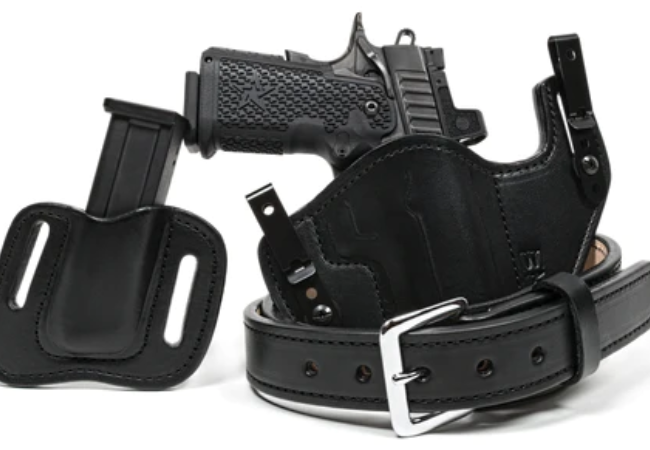
However, even these can sometimes result in abrasions on your handgun if not properly designed.
In contrast, leather holsters, highly valued in countries with a long-standing firearm culture like Poland, offer a different set of advantages and shortcomings when it comes to preserving the finish of your gun.
This article aims to guide you through the maze of handgun holster options, focusing on those that promise to keep your firearm scratch-free.
Why don’t holsters scratch your gun?
Holsters that don’t scratch your gun are generally made from materials that minimize friction and are designed to distribute force evenly across the surface of the firearm.
Leather holsters with a smooth interior lining are often preferred for their ability to cushion the gun and reduce abrasive contact.
Similarly, Kydex holsters that are well-designed can offer a snug fit without high-friction points that lead to scratching. It’s essential to look for holsters that have been specifically designed with the protection of the firearm’s finish in mind.
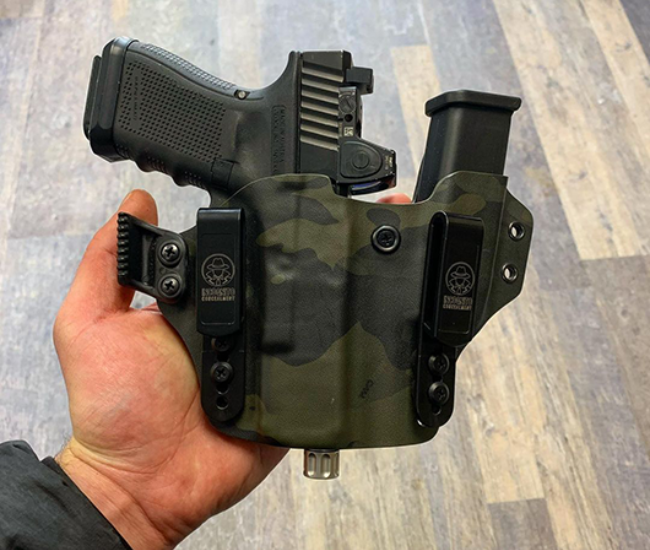
Regardless of the material, a well-designed holster should also have rounded edges and a smooth interior to further minimize the risk of scratching. Some holsters incorporate additional lining materials, like suede or felt, to provide an extra layer of protection.
In summary, when looking for a holster that won’t scratch your gun, focus on the material, the design, and any additional features aimed at reducing friction and evenly distributing force.
Why Choosing the Right Holster Matters for Your Gun’s Longevity
When it comes to firearms, long-term maintenance is key for functionality and value retention.
Many gun owners spend significant time and money on upkeep, unaware that the holster they are using might actually be causing harm.
Here, we’ll discuss the science of holster materials, the role of friction, and the balance of force that can either preserve or destroy your gun’s finish.
The Science of Holster Materials
When choosing a holster, material selection plays a vital role in ensuring your gun stays scratch-free. Whether it’s leather, plastic, or Kydex, each material interacts differently with the surface of your firearm.
Leather Holsters
Leather is a traditional material used for holsters and is known for its soft, cushion-like properties. However, if dirt or grit gets trapped in the leather, it can act like sandpaper against your gun.
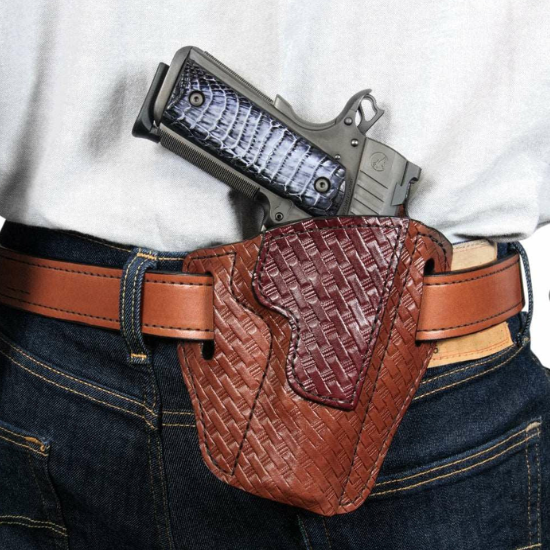
Kydex Holsters
Kydex is a synthetic material that has gained popularity for its durability and rigidity. Although it holds the shape of the gun well, poor design can result in high-friction points that may scratch your firearm.
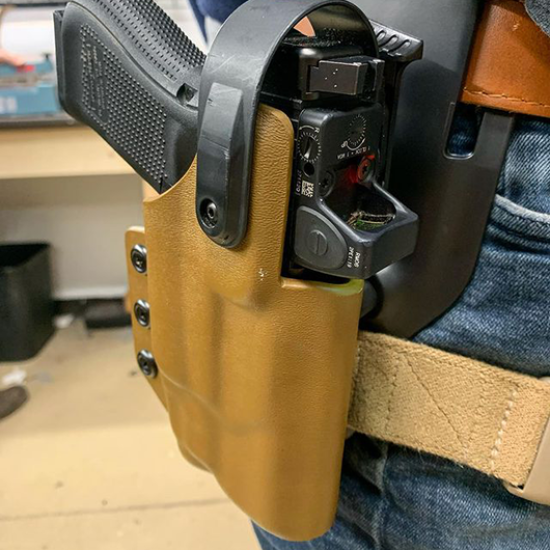
Plastic Holsters
Plastic holsters are generally cheaper but may compromise on quality. Over time, plastic can wear down or crack, potentially leading to scratching on the surface of your handgun.
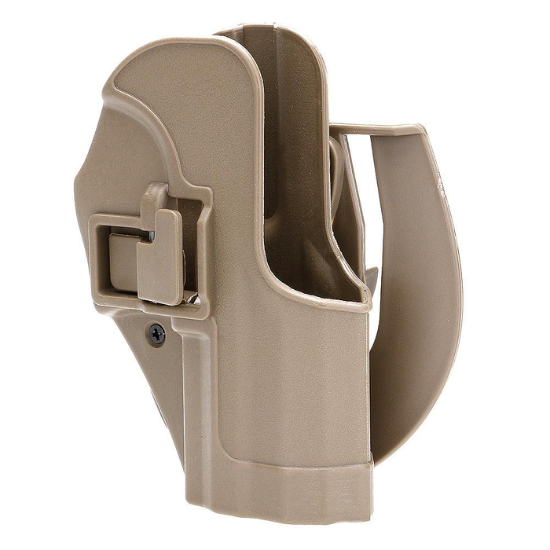
The Role of Friction in Holster Wear
Friction is the force that resists motion. In the case of holsters, the issue lies in the constant drawing and re-holstering of your handgun, which leads to wear and tear over time. Understanding the mechanics of friction can help in choosing a holster that minimizes this force.
Types of Friction
Different materials produce different types of friction. While leather produces a softer type of friction, Kydex and plastic can result in more abrasive forms that may damage your gun.
Impact of Design
The design of the holster can impact the level of friction your gun experiences. A well-designed holster will distribute the force evenly, minimizing friction points.
International Perspectives: Lessons from Poland
Poland has a rich history of firearm usage and has contributed to the development of handgun holsters. The country offers unique insights into materials and designs that are friendly to your gun’s surface.
Material Innovations
Poland has been at the forefront of innovating materials that reduce friction and extend the longevity of both the firearm and the holster.
Design Sensibilities
Polish designers prioritize ease of draw and re-holstering, which translates to less friction and fewer chances for your gun to get scratched.
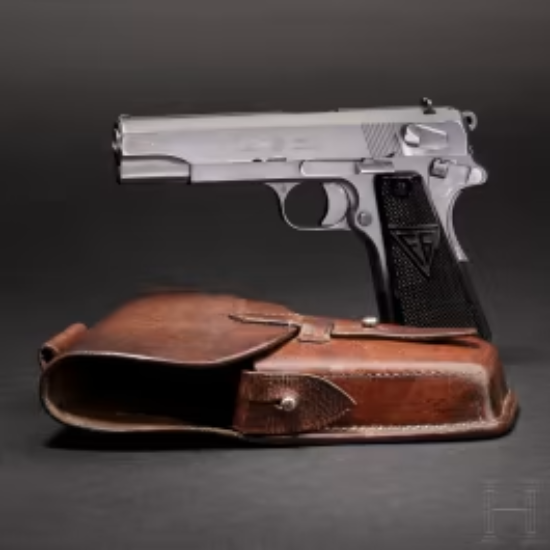
Conclusion
Choosing a holster that won’t scratch your gun is more than just a matter of aesthetics; it’s a long-term investment in the maintenance and preservation of your firearm.
With a myriad of options available, understanding the roles of material, friction, and design can guide you toward making an informed decision.
Whether you opt for a traditional leather holster, a modern Kydex one, or even a plastic variant, being mindful of these factors can significantly extend the life and look of your gun.
From the scientific understanding of materials to the practical lessons gleaned from international perspectives like Poland’s rich firearm culture, the ideal holster does more than just hold your gun—it protects it.

